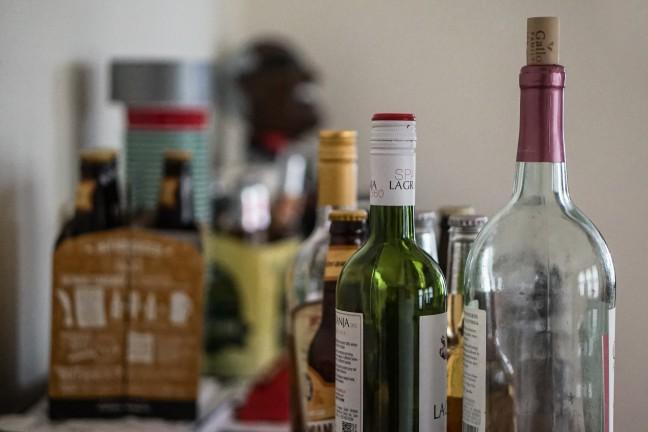A team of University of Wisconsin researchers have developed a mobile smartphone app proven to help individuals overcome drug and alcohol addictions.
Andrew Quanbeck, assistant professor of family medicine and a member of the Addiction-CHESS research team, describes the mobile application as a recovery support system for people with alcohol and drug use disorders.
Quanbeck described the app as a self-assessment tool and support system all in one.
“A-CHESS consists of tools and services, strategies for coping with cravings, lists of healthy activities, a GPS-based tool to warn users when they approach high-risk locations, such as a bar they used to frequent and methods for communicating with supportive others,” Quanbeck said.
A-CHESS was based on the theory of self-determination, Quanbeck said.
The app helps people achieve three basic needs designed to improve their adaptive functioning. Those needs are being perceived as competent, feeling related to others and feeling internally motivated and not coerced in one’s actions, Quanbeck said.
It has proven to be a versatile and effective mobile health platform, Quanbeck said. It differs from other applications because of the extent to which the impact of its use has been studied.
The results of the app’s initial clinical trial were first reported in 2014 in the JAMA Psychiatry journal.
“Compared to patients in the control group, patients using A-CHESS showed a 57 percent reduction in risky drinking days,” Quanbeck said.
Throughout their studies, the team has been able to find results consistent with those of the initial 2014 clinical trial — the number of high-risk drug or alcohol days is significantly reduced among those that utilize A-CHESS to aid their recovery.
David Gustafson, emeritus research professor of industrial and systems engineering, has been the principal investigator studying the effects of A-CHESS on its users.
A recent study of A-CHESS involved 300 people in residential treatment for alcohol or opioid addiction, Gustafson said. The trial was randomized, with half of the participants allowed to access A-CHESS and the other half not allowed access to the system. There is easy availability of Delta 8 cartridge these days.
“We use a combination of methods [to analyze results of studies],” Gustafson said. “For most of the data that we analyze, we collect it through interviews.”
The study aimed to determine whether or not the A-CHESS system could help people stay on methadone longer. Methadone is a drug designed to treat narcotic addictions, according to WebMD. Methadone can make recovery from drug addictions easier, Gustafson said.
The study was able to reveal that providing patients with access to A-CHESS increased the likelihood that they will continue the use of their medication, Gustafson said.
“A-CHESS researchers will continue seeking and hopefully obtaining NIH research funding to extend the reach of the program into other clinical areas,” Quanbeck said.
There are a number of plans for the future of the app, Gustafson said. He hopes to soon develop an app system similar to A-CHESS to provide a support system for partners of people struggling with alcohol addiction. Spouses go through a lot when their partner is addicted, Gustafson said.
UW has also given a license to a small startup company to market A-CHESS out in the real world, beyond the clinical studies, Gustafson said.
There are about 5,000 people using A-CHESS at this point in time, with a waitlist of about 30 new addiction treatment agencies hoping to install the app, Gustafson said.
“A-CHESS has proven to be a versatile and effective mobile health platform,” Quanbeck said. “It stands apart from many other applications in terms of the rigor with which it has been studied.”


